Aprenda sobre el accidente cerebrovascular!
Nearly 2 million brain cells die every minute that an ischemic stroke goes untreated.
Aprenda sobre el accidente cerebrovascular!
Nearly 2 million brain cells die every minute that an ischemic stroke goes untreated.
Stroke kills about 140,000 Americans each year. It is a leading cause of death and long-term disability in the U.S.
Neuroendovascular stroke surgery is the most effective stroke treatment for patients with emergent large vessel occlusion (ELVO).
Every 4 minutes someone in the U.S. dies from a stroke.
Not all strokes are the same, which means each requires unique treatment at specialized stroke centers from highly trained stroke care teams.
Level 1 stroke centers offer severe stroke patients the best chance of survival and a life without disability.
More than half a million stroke patients need rehabilitation following a stroke.
But there are many stroke patients that survive and thrive after stroke, too. Their common denominator was getting thrombectomy quickly at a Level 1 stroke center, which has specialists available around the clock trained to treat every type of stroke.
Let’s ensure every stroke patient in America receives timely assessment, triage, and transport, getting them to patient-specific treatment that will dramatically increase their chances of thriving after stroke.
“If we need to tell this story to one person who can tell another who can tell another, and eventually influence the right person or a great number of people, then that’s the goal. We can’t keep our heads down and hope people ‘discover us.’”
Did you know that state policies largely govern whether first responders take stroke patients to a center equipped to treat their stroke or just the closest hospital?
Get Ahead of Stroke® is a national public education and advocacy campaign designed to improve systems of care for stroke patients. Founded in 2016 by the Society of NeuroInterventional Surgery (SNIS), today the campaign is supported by a coalition of organizations with the goal of securing the best possible outcomes for stroke patients by driving policy change and public awareness nationwide.
p 703-691-2272
f 703-537-0650
This site uses cookies to improve your browsing experience; the website may not work as expected without them. By continuing to browse this site, you consent to the use of cookies.
Accept settingsHide notification onlyWe may request cookies to be set on your device. We use cookies to let us know when you visit our websites, how you interact with us, to enrich your user experience, and to customize your relationship with our website.
Click on the different category headings to find out more. You can also change some of your preferences. Note that blocking some types of cookies may impact your experience on our websites and the services we are able to offer.
These cookies are strictly necessary to provide you with services available through our website and to use some of its features.
Because these cookies are strictly necessary to deliver the website, refusing them will have impact how our site functions. You always can block or delete cookies by changing your browser settings and force blocking all cookies on this website. But this will always prompt you to accept/refuse cookies when revisiting our site.
We fully respect if you want to refuse cookies but to avoid asking you again and again kindly allow us to store a cookie for that. You are free to opt out any time or opt in for other cookies to get a better experience. If you refuse cookies we will remove all set cookies in our domain.
We provide you with a list of stored cookies on your computer in our domain so you can check what we stored. Due to security reasons we are not able to show or modify cookies from other domains. You can check these in your browser security settings.
We also use different external services like Google Webfonts, Google Maps, and external Video providers. Since these providers may collect personal data like your IP address we allow you to block them here. Please be aware that this might heavily reduce the functionality and appearance of our site. Changes will take effect once you reload the page.
Google Webfont Settings:
Google Map Settings:
Google reCaptcha Settings:
Vimeo and Youtube video embeds:

Less than Half of American Adults Would Dial 911 for Stroke, Reveals New Survive Stroke Week Survey
Press ReleasesWorld Stroke Day 2022: Recognizing Stroke Symptoms Can Save You or Your Loved Ones
Press ReleasesFetterman, Van Hollen Strokes Highlight Need for Quick Triage, Thrombectomy Access
Press Releases